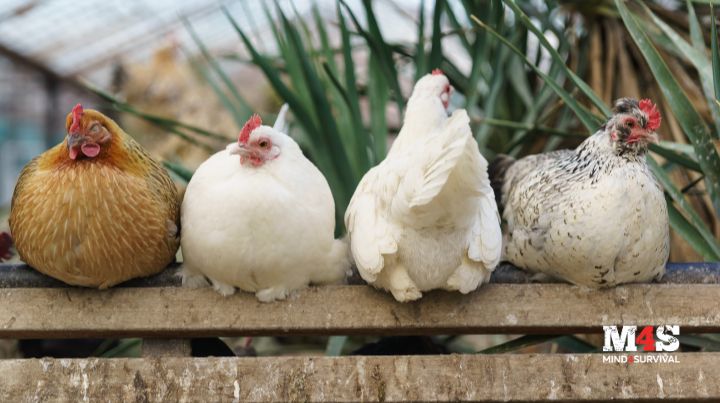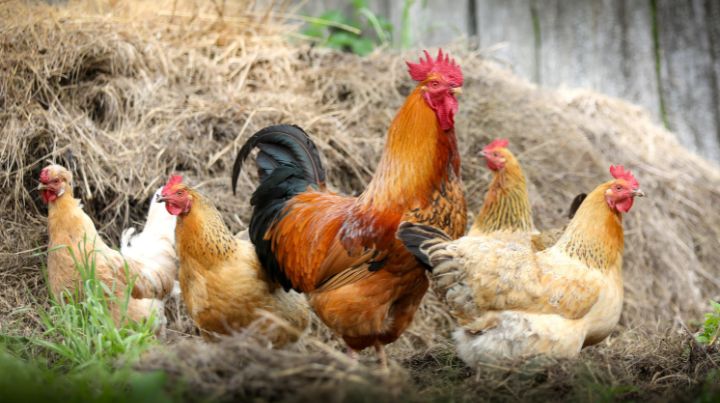With times being as uncertain as they are, raising your own backyard chickens gives you a number of important advantages. Fresh, high-quality eggs not only taste better but also offer numerous nutritional benefits not to be found in store-bought eggs. And if you are raising chickens for meat, you have complete control over what is going into your food. Additionally, chickens are natural pest control machines, creating a healthier environment for your family and pets.
But where should you start? Below, you will find an eight-point quick-start guide on getting your backyard farm up and running in no time.
Quick Look at What You’ll Learn
Research Your Local Zoning Laws
Your first step should always be to check with your municipality to ensure that raising chickens is permitted in your area. Your neighborhood may very well allow it, but it may also restrict the number of chickens you can keep, the size of your coop, or the noise level permitted in your neighborhood.
As a courtesy, you may want to speak to some of your neighbors to get a feel for how they would react to the noise or the possibility of a runaway bird on their property. Some areas may also require you to register your chickens with the local authorities.
Build or Purchase a Chicken Coop
If you are handy, you can build your own coop or upcycle any existing structures, such as old sheds or discarded furniture like dressers, armoires, and sink vanities. Your coop should be well-ventilated, draft-free, and predator-proof. It should also provide adequate space for your chickens to move around comfortably.
If you are building your coop from scratch, be sure to use high-quality materials and follow a reputable design. If you are purchasing a pre-built coop, make sure that it is the right size and style for your needs.
Choose a Suitable Chicken Breed
Match your needs to the proper chicken breed. For instance, will your chickens be used primarily for egg production, meat, or will they be dual-purpose birds? Consider egg production, temperament, size, and hardiness when selecting a specific breed, as you want birds well-suited to your climate, lifestyle, and experience level.
Popular breeds for beginners include Rhode Island Reds, known for their reliable egg production, and Buff Orpington, which are docile and friendly. Australorps are always a good bet as they are hardy and adaptable to a variety of climates, renowned for their large, brown eggs, and are popular dual-purpose birds.
Set Up a Chicken Pen or Run
Although free-ranging your birds may sound optimal, many issues can come of it, including predation, misadventure on the part of your birds, and unhappy neighbors. A pen or run may be best. The run should be enclosed with a fence tall enough to keep your chickens safe from predators and buried deep enough to prevent predators from digging under it.
Provide your chickens with shade, shelter, and fresh water. Shade can be provided by trees, shrubs, or a tarp. Shelter from the weather elements can be a simple lean-to, an overhang, or even a large, discarded container.
Purchase Chicken Feed and Supplies
Choose a high-quality feed that is specifically formulated for chickens. Look for a feed that is high in protein and contains essential vitamins and minerals. If you are a beginner, ask about the proper nutrition for your flock at your local home store or join a chicken enthusiast group online for pointers. You may want to include oyster shell as a calcium supplement for egg layers. Provide a constant supply of fresh, clean water.
Purchase essential supplies such as a feeder, waterer, nesting boxes, and a heat lamp for chicks. You will also need bedding for your coop, which can be comprised of pine pellets, hemp, pine shavings, wood chips, or some combination of these materials. Hay or straw, due to its combustibility, is not recommended in close, hot settings.
Order or Purchase Your Chickens
If ordering or purchasing chicks, be sure to get them from a reputable breeder or farm store. You can order many different breeds online by doing a search.
If you are not interested in raising chickens from hatchlings, inquire about grown birds in online groups or at your local farm store. You will pay more for adult birds, but you will also bypass the wait time involved in raising chicks to sexual maturity when they can begin laying, which is five to six months of age, depending on the breed. You can even inquire at your local animal shelter.
Bring Your Chickens Home
If your new chickens are adult birds, introduce them to their coop and run. Monitor them closely for the first few days to ensure they settle in well. Make sure they are eating, drinking, and roosting properly.
If you are raising chicks, you will need to keep them in a warm, dry place free of drafts and use a heat lamp to provide enough heat to keep them warm. Make certain they are healthy, drinking and eating properly, and are not suffering from pasty butt.
Establish a Routine
Chickens are creatures of habit, so it is important to establish a daily routine for feeding, cleaning the coop, and collecting eggs. Feed your chickens at the same time every day. This will help them develop a regular eating schedule that is easier to manage.
Clean the coop regularly to remove waste and prevent disease. Collect eggs daily to prevent them from becoming cracked or consumed.
Enjoy the Fruits of Your Labor
Maintaining a healthy flock can be rewarding and integral to the independent prepping lifestyle. Raising your own birds and producing fresh eggs every day will give you a sense of self-sufficiency and independence, which can be especially empowering in times of economic uncertainty or natural disasters.
Read the full article here







